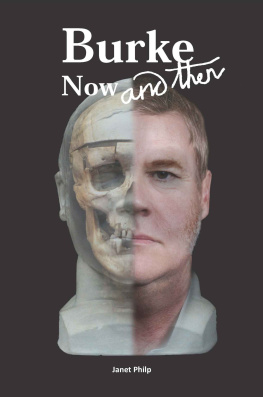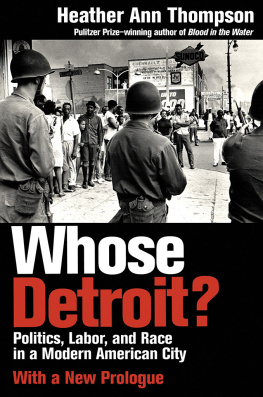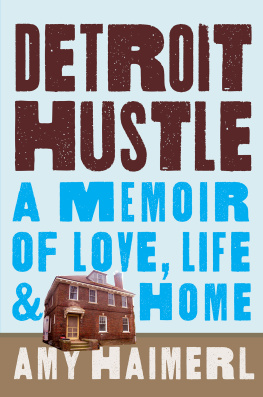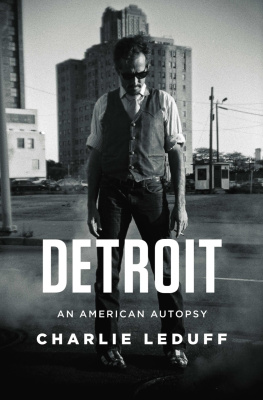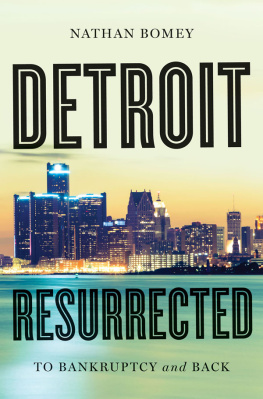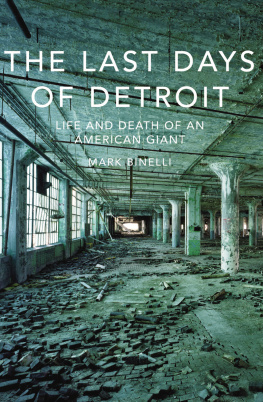
SCRIBNER
An Imprint of Simon & Schuster, Inc.
1230 Avenue of the Americas
New York, NY 10020
www.SimonandSchuster.com
Copyright 2017 by Drew Philp
All rights reserved, including the right to reproduce this book or portions thereof in any form whatsoever. For information, address Scribner Subsidiary Rights Department, 1230 Avenue of the Americas, New York, NY 10020.
First Scribner hardcover edition April 2017
SCRIBNER and design are registered trademarks of The Gale Group, Inc., used under license by Simon & Schuster, Inc., the publisher of this work.
For information about special discounts for bulk purchases, please contact Simon & Schuster Special Sales at 1-866-506-1949 or
The Simon & Schuster Speakers Bureau can bring authors to your live event. For more information or to book an event, contact the Simon & Schuster Speakers Bureau at 1-866-248-3049 or visit our website at www.simonspeakers.com.
Interior design by Kyle Kabel
Jacket design by Jonathan Bush
Jacket photograph Dave Jordano
Library of Congress Cataloging-in-Publication Data
Names: Philp, Drew, author.
Title: A $500 house in Detroit : rebuilding an abandoned home and an American city / by Drew Philp.
Other titles: Five hundred dollar house in Detroit | Rebuilding an abandoned home and an American city
Description: New York : Scribner, [2017]
Identifiers: LCCN 2016046283| ISBN 9781476797984 | ISBN 9781476797991
Subjects: LCSH: Philp, DrewHomes and hauntsMichiganDetroit. | Detroit (Mich.)Biography. | DwellingsRemodelingMichiganDetroit. | Urban renewalMichiganDetroitCitizen participation. | SubcultureMichiganDetroit. | Community developmentMichiganDetroit. | Working class whitesMichiganDetroitBiography. | African AmericansMichiganDetroitSocial conditions21st century. | Detroit (Mich.)Race relations. | Generation YBiography.
Classification: LCC F574.D453 P55 2017 | DDC 307.3/4160977434dc23 LC record available at https://lccn.loc.gov/2016046283
ISBN 978-1-4767-9798-4
ISBN 978-1-4767-9801-1 (ebook)
Portions of this book originally appeared in slightly different form on BuzzFeed.com.
For my family
All right, then, Ill go to hell.
Huck Finn
Contents
Authors Note
W hen I moved to Detroit I never intended to write a book. As such, many of the conversations and scenes depicted herein are reconstituted from memory or detailed journal entries. Each person in this book is real, and in their own private way attempting to build a castle from ashes. Namesunless indicated by surnameidentifying details, and occasional places have been changed out of respect for this work, often best performed in quiet anonymity. In addition, burning down houses is a pastime in Detroit, and I wish no more danger on my community than Ive already brought.
PROLOGUE
Best Bid

Starting bid: $500
I had one chance. We all did.
Does anyone want anything else on page 267? Nothing on 267? 268? Anyone for page 268?
The auctioneer read aridly from an enormous book in front of a crowd of murmuring people. I had come to a hotel downtown for a live auction of properties in Detroit. Starting bid was $500, less than the price of a decent television.
I looked like Id come straight from the farm. My jeans had holes in them, my sweater was ripped, and I had on a woolen hat for the cold. I had purchased a brand-new Carhartt for the coming winter and it was still stiff. There was no heat in the house on the east side where I was living.
Aside from some Greeks bidding on numerous commercial properties and some mansions in the ritzy areas, my neighbor Jake and I were the only white people there. Jake had moved to Detroit from San Francisco two years before and was trying to buy the land next to his newly purchased, and formerly abandoned, home.
The structure I wanted had run wild, open and unclaimed for at least a decade.
Page 271?
A hand shot up from the audience.
All right, 466 Franklin. Going once, going twice. 466 Franklin. 564 Franklin. Anyone for 564? Going once, going twice. 783
A group of three hands shot up in the middle of the bidding floor. One held an orange card with a number written on it. They stood, obviously a family, probably trying to buy back their house from foreclosure, or that of a relative, or to purchase the abandoned lots next to where theyd lived, maybe for decades. The county was auctioning off tens of thousands of properties that day, most abandoned and in Detroit.
I see you guys. Keep calm. The starting bid is five hundred dollars for 783 Franklin, Detroit, Michigan. The gentleman standing in the back has the opening bid at five hundred. Any counteroffers? Five hundred dollars. Going once, going twice, three times, sold! To bidder 6579! Please stay in your seat. Well come to you.
A generation earlier 783 Franklin would have been desirable property. Only a few people cared for Detroit now. This was October 2009 and the citys average home price hadnt even dropped to its lowest. Detroit certainly wasnt yet fashionable, and navely I thought it never would be.
It seemed almost everyone was moving out, a city of 2 million people down to fewer than 800,000. In the ten years between 2000 and 2010, 25 percent of the citys remaining population left. Half of the elementary-age children left. Since the 1940s more than 90 percent of manufacturing jobs had left. No longer was the talk about white flight, but of middle-class flight. The city that put the world on wheels drove away in the cars they no longer made.
I had three cashiers checks each for $500 in my pocket. It was just about every cent I had in the world. I was going to attempt to buy a quaint little Queen Anne I had recently boarded up as well as the two lots next to it. If someone were to bid against me on even one of the properties, my plan would fall apart. The auctioneer was now working through one of Detroits oldest and wealthiest neighborhoods, and I waited, nervous.
When the auctioneer arrived at a property on Boston Street a young man in a United States Army uniform stood to bid. The houses in Boston-Edison are mansions that used to hold Henry Ford, members of the Motown stable, Detroit Tigers, politicians. Almost all of the houses still stood, but many were abandoned.
The soldier was sitting directly behind me and had brought his family, his sons and daughters, his aging and dignified parents, their hopeful eyes looking on at their father and son as he stood to attention and raised his orange bidding card.
Going once...
Someone had begun to bid against him. It was one of the Greeks, wearing blue jeans and a denim shirt, who had already purchased multiple properties that day. He obviously had deep pockets and was buying for an investment company against a man who wanted a place for his family.
The restless room became alert. The price climbed and the young soldier raised his sign higher with each increasing bid, now standing on his tiptoes at $15,000, beginning to bounce at eighteen, the room cheering him on, their hopes projected momentarily onto this one kid who had done good, who had escaped Detroit the only way he knew how, made something of himself, and come back.
At $20,000 the room audibly sighed. There were a smattering of boos at the Greek as the young mans money ran out, beaten by the speculator and the dozens of properties he had already purchased to make money for someone else, someone already wealthy. Instead of a family moving into that house, it would likely lie empty until the neighborhood was stabilized by others, perhaps that young soldier himself if he was lucky. Then, as plucky young people like me came tumbling in during Detroits second gold rush, the house would be sold at a profit to someone almost certainly unaware of its provenance. I felt a little bitter for the young man and his family. They were probably bidding with every cent they had in the world, too.


